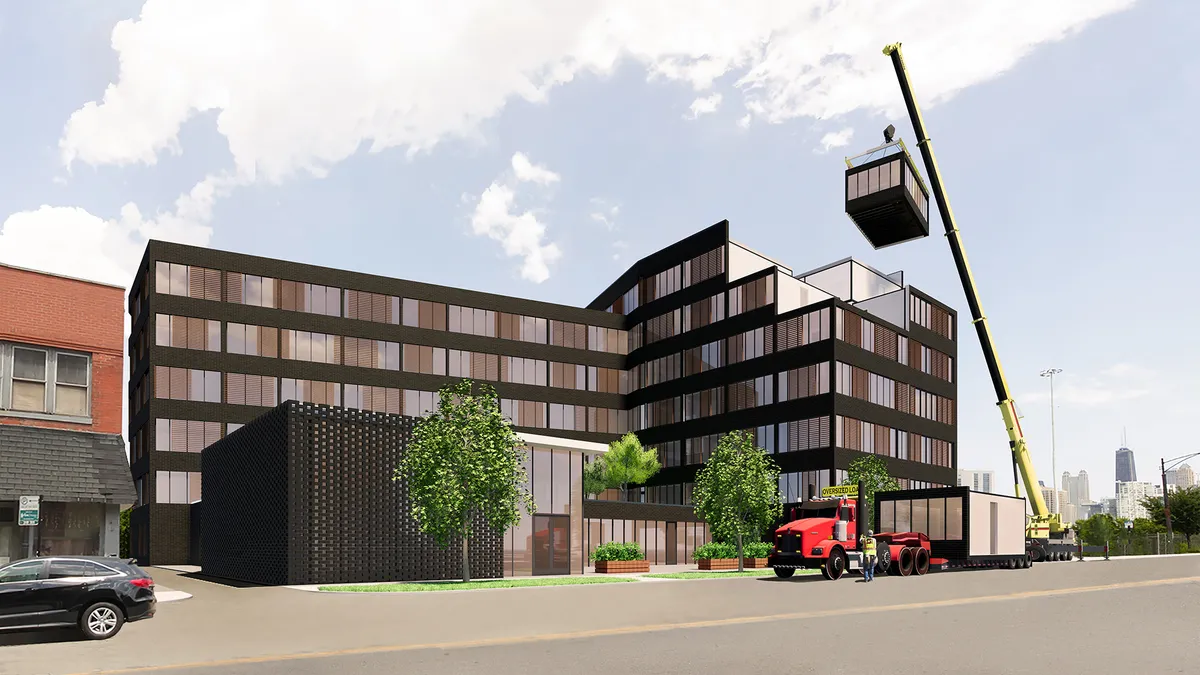Dive Brief:
- General contractor turned modular building company Skender Manufacturing announced Wednesday that it would begin production in a new Chicago facility in November, creating 100 jobs.
- The company said it will manufacture modular buildings and modular building components at the new plant, with a focus on the healthcare, multifamily and commercial sectors. Skender's first project there will be an 80,000-square-foot, six-story, 100-unit multifamily building that will be located in the city's West Loop area. Construction of the foundation and steel podium, upon which the modules will be installed, should start in early 2019, with the modules slated for delivery in February. After an eight-week assembly period, the building should be substantially complete by July 2019, shaving 30% to 40% off the traditional construction schedule and providing a 10% to 20% cost savings.
- Company CEO Mark Skender said the company is merging design, manufacturing and construction into one process and that the efficiencies that offsite modular building allows — elimination of weather-related delays, a high-quality end product due to the manufacturing environment, low costs and a shorter schedule — will help Skender deliver affordable buildings. Peter Murray, the company's president, brings industry experience from his tenure as president and chief operating officer at Guerdon Modular Buildings in Boise, Idaho.
Dive Insight:
Not very long ago, modular building was once associated with inexpensive housing but is now is one of the construction methods of choice for companies like Marriott International, which announced an aggressive modular building program last year. The company said it would use the method on approximately 50 new hotels, including its Courtyard by Marriott and AC Hotel brands.
Google's parent company Alphabet also announced last year that it would buy up to $30 million of apartment units — about 300 — from modular company Factory OS to use as short-term housing for its employees in the San Francisco area.
And this year, the New York City Department of Preservation and Housing issued a request for proposals for a new modular, mixed-use, affordable housing project in Brooklyn, the first under the department's Housing 2.0 initiative. Despite the logistical challenges of transporting and storing modular components in New York City and the lack of manufacturers nearby, housing officials want to take advantage of the method's potential time and cost savings.
And more traditional contractors are incorporating modular building practices into their operations, whether they are for entire rooms or just components. In fact, according to a February 2018 Esticast Research and Consulting report, Kiewit and Balfour Beatty are some of the biggest players in the global modular construction market.










